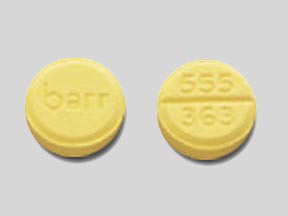
Diazepam Coupons & Savings Card – Discount Prices from $4.36
Generic for: Diazepam intensol, Valium, Diastat pediatric
My prescription
Edit
5MG, Diazepam (60 Tablets)
Select pharmacy

CVS
$19.56
COUPON PRICE
Walmart
$4.36
COUPON PRICE
Albertsons
$10.55
COUPON PRICE
Walgreens
$10.60
COUPON PRICEDiazepam savings card
Show this card to your pharmacist
Walmart
$4.36
BIN
ID
PCN
GRP
019876
LH33492499
CHIPPO
LHX
Powered by
More prescriptions for spasticity
More prescriptions for spasticity
Price history for Valium (brand) & Diazepam (generic)
60 Tablets, 5MG
Average retail price for Valium
Average retail price for Diazepam
Average SaveHealth price for Diazepam
Our price history data is based on aggregated prescription data collected from participating pharmacies in America. Our prescription data updates daily to reflect the latest price changes. If you notice a missing data point, it means there wasn't sufficient data available to generate a monetary value for that date.
We analyzed Diazepam prices for (5MG, 60 Tablets) over the last 12 months. The average retail price was $26.32, while the average price using the SaveHealth discount card was $18.66. That's a savings of approximately 29.10% when using our Diazepam coupon.
Compared to the generic version, Valium had an average price of $227.99 over the same time period. With the SaveHealth savings card, Diazepam is 91.82% cheaper on average than Valium.
*Retail prices are based on pharmacy claims data, and may not be accurate when we don't have enough claims.
Diazepam Intensol (Diazepam) dosage forms
Dosage Quantity Price from Per unit 2MG 1 Tablet $2.52 $2.52 2MG 2 Tablets $2.55 $1.27 2MG 10 Tablets $2.74 $0.27 2MG 12 Tablets $2.78 $0.23 2MG 15 Tablets $2.86 $0.19 2MG 20 Tablets $2.97 $0.15 2MG 30 Tablets $3.21 $0.11 2MG 50 Tablets $3.69 $0.07 2MG 60 Tablets $3.92 $0.07 2MG 90 Tablets $11.14 $0.12
| Dosage | Quantity | Price from | Per unit |
|---|---|---|---|
| 2MG | 1 Tablet | $2.52 | $2.52 |
| 2MG | 2 Tablets | $2.55 | $1.27 |
| 2MG | 10 Tablets | $2.74 | $0.27 |
| 2MG | 12 Tablets | $2.78 | $0.23 |
| 2MG | 15 Tablets | $2.86 | $0.19 |
| 2MG | 20 Tablets | $2.97 | $0.15 |
| 2MG | 30 Tablets | $3.21 | $0.11 |
| 2MG | 50 Tablets | $3.69 | $0.07 |
| 2MG | 60 Tablets | $3.92 | $0.07 |
| 2MG | 90 Tablets | $11.14 | $0.12 |
| 2MG | 100 Tablets | $11.37 | $0.11 |
| 2MG | 120 Tablets | $11.85 | $0.10 |
| 2MG | 500 Tablets | $26.04 | $0.05 |
| 5MG | 60 Tablets | $4.36 | $0.07 |
| 5MG | 1 Tablet | $2.53 | $2.53 |
| 5MG | 2 Tablets | $2.56 | $1.28 |
| 5MG | 3 Tablets | $2.59 | $0.86 |
| 5MG | 4 Tablets | $2.62 | $0.66 |
| 5MG | 5 Tablets | $2.66 | $0.53 |
| 5MG | 6 Tablets | $2.69 | $0.45 |
| 5MG | 9 Tablets | $2.78 | $0.31 |
| 5MG | 10 Tablets | $2.81 | $0.28 |
| 5MG | 12 Tablets | $2.87 | $0.24 |
| 5MG | 15 Tablets | $2.97 | $0.20 |
| 5MG | 20 Tablets | $3.12 | $0.16 |
| 5MG | 21 Tablets | $3.15 | $0.15 |
| 5MG | 25 Tablets | $3.28 | $0.13 |
| 5MG | 30 Tablets | $3.43 | $0.11 |
| 5MG | 33 Tablets | $3.52 | $0.11 |
| 5MG | 40 Tablets | $3.74 | $0.09 |
| 5MG | 45 Tablets | $3.90 | $0.09 |
| 5MG | 50 Tablets | $4.05 | $0.08 |
| 5MG | 75 Tablets | $11.00 | $0.15 |
| 5MG | 90 Tablets | $11.79 | $0.13 |
| 5MG | 100 Tablets | $12.10 | $0.12 |
| 5MG | 120 Tablets | $12.72 | $0.11 |
| 5MG | 150 Tablets | $19.55 | $0.13 |
| 5MG | 180 Tablets | $20.46 | $0.11 |
| 5MG | 240 Tablets | $22.27 | $0.09 |
| 5MG | 500 Tablets | $30.16 | $0.06 |
| 5MG | 1000 Tablets | $44.70 | $0.04 |
| 10MG | 1 Tablet | $2.53 | $2.53 |
| 10MG | 2 Tablets | $2.56 | $1.28 |
| 10MG | 4 Tablets | $2.62 | $0.66 |
| 10MG | 5 Tablets | $2.65 | $0.53 |
| 10MG | 6 Tablets | $2.68 | $0.45 |
| 10MG | 10 Tablets | $2.81 | $0.28 |
| 10MG | 15 Tablets | $2.96 | $0.20 |
| 10MG | 20 Tablets | $3.12 | $0.16 |
| 10MG | 25 Tablets | $3.27 | $0.13 |
| 10MG | 28 Tablets | $3.36 | $0.12 |
| 10MG | 30 Tablets | $3.42 | $0.11 |
| 10MG | 40 Tablets | $3.73 | $0.09 |
| 10MG | 45 Tablets | $3.88 | $0.09 |
| 10MG | 50 Tablets | $4.04 | $0.08 |
| 10MG | 56 Tablets | $4.22 | $0.07 |
| 10MG | 60 Tablets | $4.35 | $0.07 |
| 10MG | 90 Tablets | $11.77 | $0.13 |
| 10MG | 100 Tablets | $12.08 | $0.12 |
| 10MG | 112 Tablets | $12.45 | $0.11 |
| 10MG | 120 Tablets | $12.69 | $0.11 |
| 10MG | 150 Tablets | $19.20 | $0.13 |
| 10MG | 180 Tablets | $20.04 | $0.11 |
| 10MG | 240 Tablets | $21.72 | $0.09 |
| 10MG | 500 Tablets | $29.01 | $0.06 |
| 10MG | 1000 Tablets | $43.01 | $0.04 |
